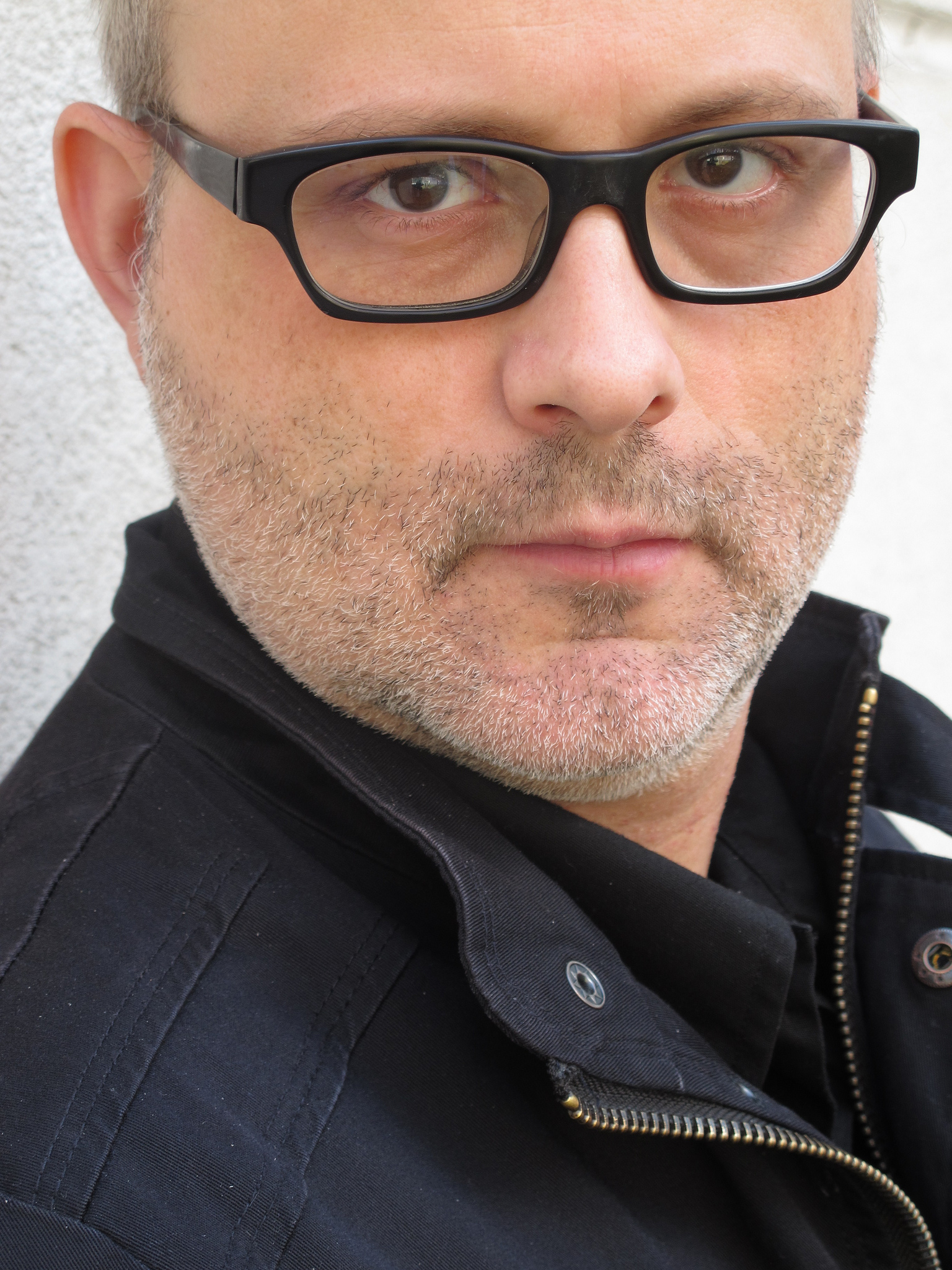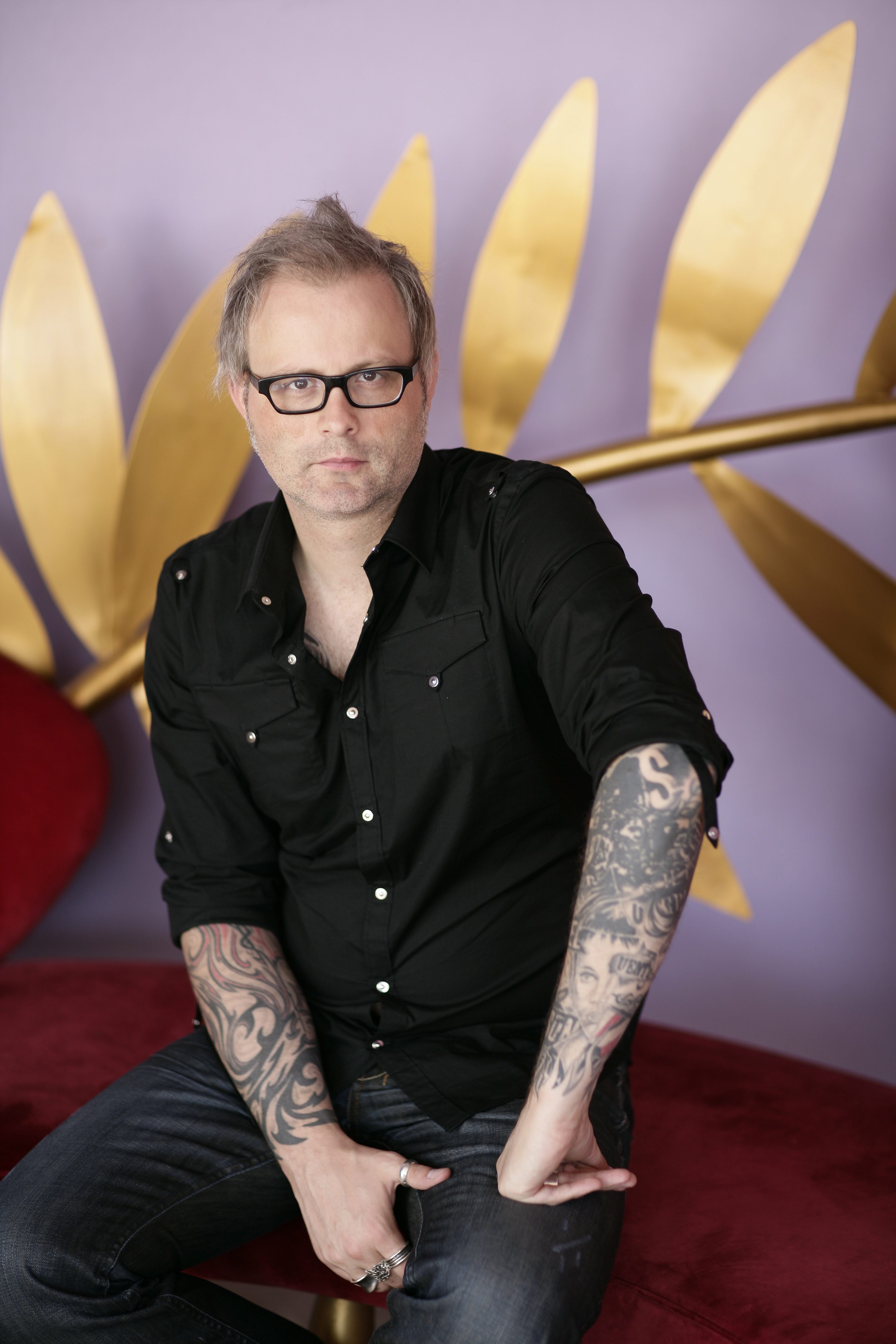Denis Côté, writer, producer, director, critic (born 16 November 1973 in Grand Falls, NB). Filmmaker Denis Côté has won acclaim and awards in Canada and internationally for his independent features and documentaries. He is known as an uncompromising and prolific maverick who challenges audiences rather than offering crystal clear, classically structured narratives. A former film critic, Côté writes, directs and produces films that are starkly minimalist, strangely poetic, dryly funny and thematically enigmatic. His deadpan style and marginalized characters have earned him an international reputation as one of Canada’s leading auteurs.

Early Years and Education
Côté has been a Montrealer since age two. Born in an agricultural region of New Brunswick, he grew up in suburban Longeuil watching horror movies in his parents’ basement. He broadened his understanding of film at Montréal’s Collège Ahuntsic and regularly attended the Cinémathèque québècoise, where he “met all the Montreal cinephiles.” Eager to shoot his own movies, he collaborated with his professor, who became his cinematographer on various experimental shorts. In 1994, Côté founded his own production company, nihilproductions.
Film Critic
Côté is often referred to as a film critic who became a filmmaker. But he was actually making movies long before he began reviewing them. “I became a critic by accident,” he has said. He was asked to talk about film on the Montreal radio station CIBL, which led to a film critic position from 1999 to 2005 with the now defunct alternative weekly ici. “I had no concept of journalism,” he recalls, but he had the freedom to “go with what you feel. It’s really instinctive.” While on staff at ici, Côté became vice-president of the Québec association of film critics (Association québécoise des critiques de cinéma, AQCC).
An acerbic critic with little interest in mainstream commercial releases (“I would give a full page to an Abbas Kiarostami film and a paragraph to Spiderman”), Côté aroused the ire of ici’s publisher Quebecor. Distributors were pulling ads because of Côté’s no-holds-barred reviews. “I was read by many people, but my boss couldn’t sell advertising because of me,” Côté recalls. After a long battle supported by colleagues, he decided to devote himself entirely to moviemaking.

Fiction Features
Côté’s films are made on shoestring budgets. “You’re going to laugh,” he said in a 2011 interview with the Globe and Mail, “but my entire film budget since 1997 — for five features and 15 shorts — totals $2.2 million. Curling cost $1 million.” His movies typically focus on alienated characters living in bleak, isolated regions.
In his feature debut, Les États nordiques (2005), which won the Golden Leopard prize at the Locarno International Film Festival, a man mercy-kills his mother and then hides out in the middle of nowhere. Nos vies privée (2007) depicts a Bulgarian couple who meet online and play out their relationship in a Quebec village. Elle veut le chaos (2008) is a revenge story set in the hinterland. A relatively higher-budgeted project with French star Laurent Lucas, the film received the best director prize and a special jury award at the Locarno Film Festival.
Côté’s fourth film, Curling (2010), earned him a second best director award at Locarno and is widely considered his most accessible work. In it, a rural handyman lives with and controls his young daughter, keeping her disconnected from the outside world. In both Curling and Vic + Flo ont vu un ours (Vic + Flo Saw A Bear, 2013), the threat of violence looms over the characters and the countryside where the action unfolds. The latter film, about a lesbian couple just released from prison, won the Silver Bear at the Berlin Film Festival.
Documentaries
Côté’s non-fiction work is as unconventional as his dramatic films. Que ta joie demeure (2014) is a meditation, partly dramatized, on the impact of working with factory machines. Two other documentaries have attracted considerable attention for their unconventional, destabilizing form and content.
Carcasses (2009) depicts an eccentric man who spends his days continually dismantling and re-building the old cars he piles up in the scrap yard he calls home. Programmed at Cannes and the Toronto International Film Festival (TIFF), most of the film is shot in long takes. The film dispassionately observe its subject going about his seemingly absurd daily rituals, layering these scenes into staged moments. In Bestiaire (2012), which screened at Sundance and TIFF, zoo animals stare out from the screen in extreme close-ups. The film is designed to provoke viewers into asking uncomfortable questions about purpose and meaning.
Carcasses, Curling and Vic + Flo ont vu un ours were all named to Canada’s Top Ten list of feature films in their respective years by TIFF. “I’m a film festival guy,” says Côté “I have to admit it. If the film can do the usual 30 film festivals in a year, for me, it’s okay.”
Advocate
With his work and his public statements, Côté stands up for the fading ideal of personal, auteur filmmaking; that movies can be contemplative and thematically driven, seemingly lacking a discernible narrative, rather than story driven. “I’m not obsessed with entertainment. I’m not obsessed with narrative or storytelling,” he has said, “I’m interested in forms.” Ironically, Côté has also said that he is obsessed with storytelling technique.
When he was a film critic, Côté locked horns with distributors who objected to his criticisms of their films. In February 2014, he confronted Quebec exhibitor Vincenzo Guzzo, who publicly complained that Quebec art-house films did no business at the box office. “I don’t know why journalists pay attention to this man,” said Côté. “He’s just a clown.”
Retrospectives
Côté has received international acclaim for his films, which have been the subject of retrospectives around the world. Montreal’s Cinémathèque québècoise ran a retrospective in November 2008. The Canadian Film Institute in Ottawa followed in May 2011 with Entre Nous: The Films of Denis Côté; it also published a monograph of the same name featuring essays on his films. Vancouver’s The Cinematheque programmed a retrospective called Drifting States: The Films of Denis Côté in March 2014. Similar retrospectives have been held in Vienna, St. Petersburg, Israel, Prague, Toronto, New York, Barcelona and Larochelle, France.
Awards
- Best Editing (Seconde valse), Atlantic Film Festival (2001)
- Bronze Prize (La sphatte), Brno B16, Czech Republic (2004)
- Golden Leopard – Video (Les états nordiques), Locarno International Film Festival (2005)
- Indie Vision Grand Prize (Les états nordiques), Jeonju, Korea (2006)
- Best Directing (Elle veut le chaos), Locarno International Film Festival (2008)
- Special Mention from the Youth Jury (Elle veut le chaos), Locarno International Film Festival (2008)
- Best Canadian Film (Elle veut le chaos), Festival international du cinéma francophone en Acadie (2008)
- Best Directing (Curling), Locarno International Film Festival (2010)
- Best Experimental Feature (Bestiaire), Greenpoint Film Festival (2012)
- Alfred Bauer Prize (Vic and Flow Saw a Bear), Berlin Film Festival (2013)
- Best Screenplay (Vic and Flo Saw A Bear), FIFF Namur (2013)
- Jury Special Mention (Que ta joie demeure), FICUNAM Mexico (2014)
- Special Jury Prize – National Feature (Wilcox), Montreal International Documentary Festival (2019)
- ACCU Best Film Award (Répertoire des villes disparues), Uruguay International Film Festival (2019)
- Best Film (Répertoire des villes disparues), Americana Film Fest (2020)
- Encounters Best Director (Hygiène sociale), Berlin Film Festival (2021)

 Share on Facebook
Share on Facebook Share on X
Share on X Share by Email
Share by Email Share on Google Classroom
Share on Google Classroom


